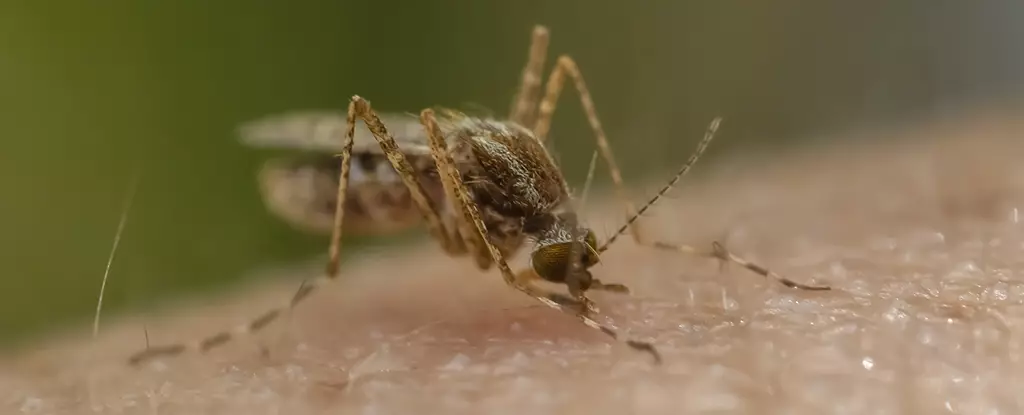Malaria remains a persistent global health crisis, causing approximately 250 million infections and hundreds of thousands of deaths annually. Traditional methods of controlling malaria predominantly focus on mitigating the transmission of the disease rather than offering strong preventive solutions. However, a novel study has emerged, revealing the potential of genetically modified mosquitoes in administering a new vaccine, which could revolutionize the strategies employed in the combat against malaria.
This groundbreaking research, conducted by scientists from Leiden University and Radboud University in the Netherlands, introduces a second generation of a malaria vaccine, revealing pronounced improvements in immunization efficacy. Remarkably, the study reported that eight out of nine young adults administered the new vaccine—the GA2 version—were granted protection against malaria. This striking contrast highlights a substantial advancement when compared to the existing vaccine’s performance, which only protected one out of eight participants.
At the core of this innovative vaccine is a genetically weakened variation of the Plasmodium falciparum parasite, the primary causative agent of malaria in humans. Unlike its more hostile counterpart, this attenuated version cannot induce disease symptoms. According to vaccinologist Meta Roestenberg, the administration of these impaired parasites occurs through a mosquito bite, mimicking the natural process of malaria infection but without the associated risks.
Upon entering the human body, the GA2 variant exhibits a significantly slower development rate; it takes around a week to mature within the liver, in stark contrast to the previous GA1 version, which matured in merely 24 hours. This extended maturation period appears to bestow a crucial advantage, granting the immune system adequate time to identify and mount a defensive response against the pathogen.
The study’s findings further indicate that the GA2 vaccine triggers a robust and diverse immune response. Such a reaction is vital, as it suggests that the vaccine can prepare the body more effectively for potential future encounters with the full-strength malaria parasite. Understanding the underlying mechanisms driving this improved immunogenicity is essential for refining the vaccine and potentially enhancing its efficacy even further.
One notable aspect of the study is the minor side effects reported by participants, largely consisting of localized redness and itchiness around the mosquito bite site. Such mild reactions can be deemed acceptable in the context of vaccination, especially when juxtaposed with the severe consequences of malaria infection. Notably, participants were subsequently placed on anti-malaria medication, ensuring their protection post-study and reinforcing the importance of comprehensive care in malaria prevention strategies.
Despite these advancements, the journey to widespread malaria vaccination remains fraught with challenges. Current vaccines provide modest protection rates, ranging from 50% to 77%, and often offer immunity that lasts no more than a year. Thus, continuous improvements and novel methods like the mosquito-borne GA2 vaccine are critical in the pursuit of a reliable solution.
While the concept of using genetically modified mosquitoes for vaccine delivery showcases ingenuity, translating this method into viable public health strategies poses practical hurdles. The delivery mechanism, while effective in clinical trials, is not currently feasible for mass vaccination campaigns due to logistical constraints and the inherent complexities of vector-based vaccine administration.
The advancement of malaria prevention through innovative research, like the GA2 vaccine, highlights the urgency to explore unconventional methods that could ultimately save countless lives. As researchers delve deeper into the intricacies of this approach, there remains hope that malaria can be combated more effectively through combined preventive strategies and cutting-edge vaccine technology.
In summation, the integration of genetic engineering and immunological research may illuminate pathways to eradicating malaria, providing a glimmer of hope in a battle that has persisted for millennia. The next phase involves not just clinical insights but also strategic planning to operationalize these findings for the communities that need them the most. The fight against malaria continues, fueled by scientific innovation and the determination to turn the tide against this devastating disease.


Leave a Reply